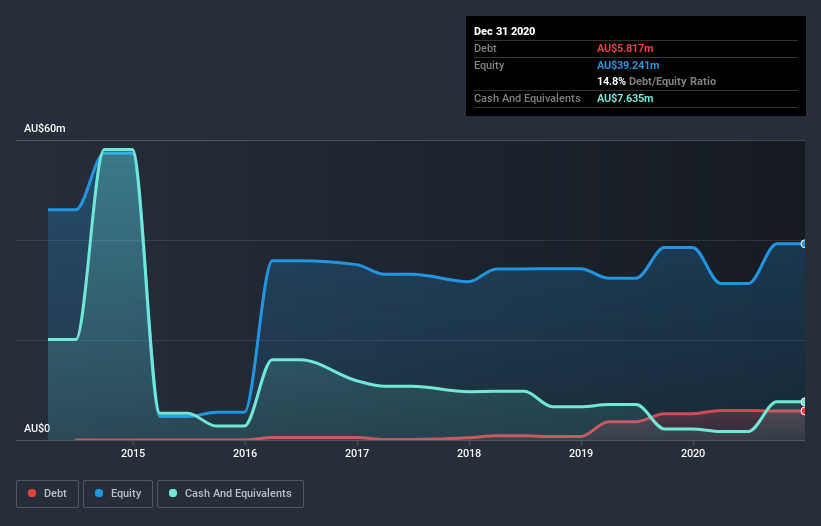Is TasFoods (ASX:TFL) Using Debt In A Risky Way?
Some say volatility, rather than debt, is the best way to think about risk as an investor, but Warren Buffett famously said that 'Volatility is far from synonymous with risk.' When we think about how risky a company is, we always like to look at its use of debt, since debt overload can lead to ruin. We note that TasFoods Limited (ASX:TFL) does have debt on its balance sheet. But the real question is whether this debt is making the company risky.
When Is Debt A Problem?
Debt and other liabilities become risky for a business when it cannot easily fulfill those obligations, either with free cash flow or by raising capital at an attractive price. Ultimately, if the company can't fulfill its legal obligations to repay debt, shareholders could walk away with nothing. While that is not too common, we often do see indebted companies permanently diluting shareholders because lenders force them to raise capital at a distressed price. Of course, debt can be an important tool in businesses, particularly capital heavy businesses. The first step when considering a company's debt levels is to consider its cash and debt together.
View our latest analysis for TasFoods
What Is TasFoods's Debt?
You can click the graphic below for the historical numbers, but it shows that as of December 2020 TasFoods had AU$5.82m of debt, an increase on AU$5.27m, over one year. But it also has AU$7.64m in cash to offset that, meaning it has AU$1.82m net cash.
A Look At TasFoods' Liabilities
The latest balance sheet data shows that TasFoods had liabilities of AU$11.2m due within a year, and liabilities of AU$6.69m falling due after that. Offsetting this, it had AU$7.64m in cash and AU$4.49m in receivables that were due within 12 months. So its liabilities outweigh the sum of its cash and (near-term) receivables by AU$5.78m.
Of course, TasFoods has a market capitalization of AU$40.5m, so these liabilities are probably manageable. However, we do think it is worth keeping an eye on its balance sheet strength, as it may change over time. While it does have liabilities worth noting, TasFoods also has more cash than debt, so we're pretty confident it can manage its debt safely. The balance sheet is clearly the area to focus on when you are analysing debt. But you can't view debt in total isolation; since TasFoods will need earnings to service that debt. So when considering debt, it's definitely worth looking at the earnings trend. Click here for an interactive snapshot.
Over 12 months, TasFoods reported revenue of AU$67m, which is a gain of 32%, although it did not report any earnings before interest and tax. With any luck the company will be able to grow its way to profitability.
So How Risky Is TasFoods?
Statistically speaking companies that lose money are riskier than those that make money. And the fact is that over the last twelve months TasFoods lost money at the earnings before interest and tax (EBIT) line. Indeed, in that time it burnt through AU$1.6m of cash and made a loss of AU$6.4m. Given it only has net cash of AU$1.82m, the company may need to raise more capital if it doesn't reach break-even soon. With very solid revenue growth in the last year, TasFoods may be on a path to profitability. By investing before those profits, shareholders take on more risk in the hope of bigger rewards. There's no doubt that we learn most about debt from the balance sheet. However, not all investment risk resides within the balance sheet - far from it. Be aware that TasFoods is showing 4 warning signs in our investment analysis , and 1 of those makes us a bit uncomfortable...
Of course, if you're the type of investor who prefers buying stocks without the burden of debt, then don't hesitate to discover our exclusive list of net cash growth stocks, today.
This article by Simply Wall St is general in nature. It does not constitute a recommendation to buy or sell any stock, and does not take account of your objectives, or your financial situation. We aim to bring you long-term focused analysis driven by fundamental data. Note that our analysis may not factor in the latest price-sensitive company announcements or qualitative material. Simply Wall St has no position in any stocks mentioned.
Have feedback on this article? Concerned about the content? Get in touch with us directly. Alternatively, email editorial-team (at) simplywallst.com.


